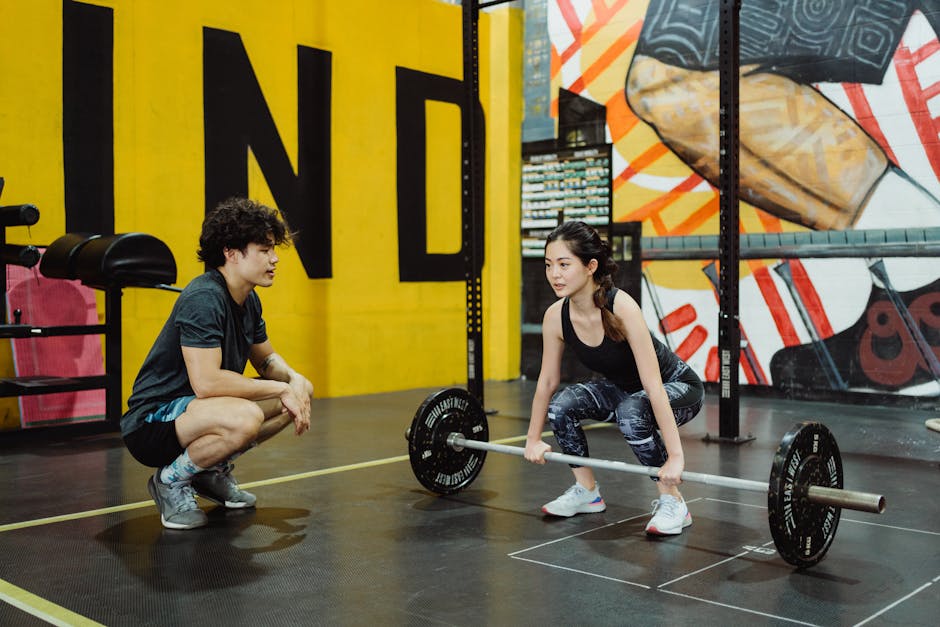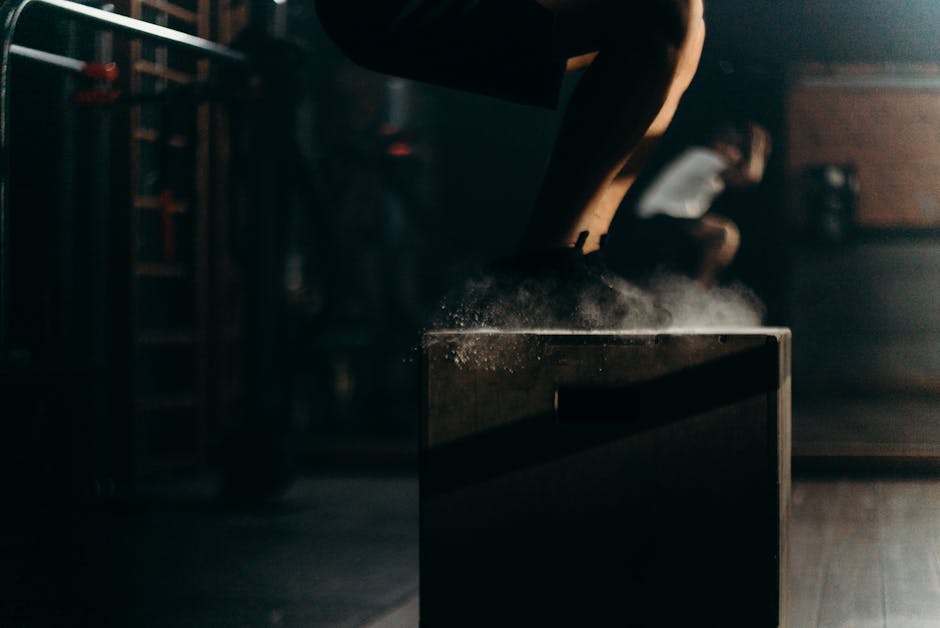What Exactly Does an Athletic Performance Coach Do?
Why Athletic Performance Coaches Are Essential for Modern Athletes

An athletic performance coach is a specialized professional who helps athletes optimize their physical abilities, mental toughness, and overall performance through comprehensive training programs that go far beyond traditional strength training.
Quick Answer: What Does an Athletic Performance Coach Do?
- Develops comprehensive training programs covering strength, speed, agility, and power
- Designs sport-specific conditioning custom to individual athlete needs
- Provides mental performance coaching for confidence, focus, and resilience
- Creates injury prevention strategies through movement analysis and corrective exercises
- Optimizes recovery and nutrition for peak performance and longevity
- Analyzes performance data to continuously refine training approaches
The modern athletic landscape demands more than just physical fitness. Today's athletes need a holistic approach that addresses every aspect of performance - from biomechanics and strength to mental resilience and recovery strategies. This is where athletic performance coaches become invaluable.
Unlike traditional personal trainers who focus on general fitness, or strength coaches who primarily target raw power, athletic performance coaches take a comprehensive view. They understand that elite performance comes from the integration of multiple systems: physical conditioning, mental preparation, injury prevention, and strategic recovery.
The research shows that "physical fitness alone is no longer enough for athletes striving to reach their full potential." Modern athletic development requires custom programs, mindset training, and injury prevention - all designed to optimize performance while reducing risks.
As Lou Ezrick, founder of Evolve Physical Therapy + Sports Rehabilitation, I've worked with countless athletes who've transformed their performance through comprehensive coaching approaches. My experience treating complex injuries and working with elite rehabilitation cases has shown me how crucial it is for athletes to work with an athletic performance coach who understands the complete picture of human performance.

The Comprehensive Role of an Athletic Performance Coach
Picture this: you're an athlete who trains hard, eats well, and gives everything to your sport. But somehow, you're still not reaching your full potential. Sound familiar? This is where an athletic performance coach becomes your secret weapon.
At Evolve Physical Therapy + Sports Rehabilitation, we see dedicated athletes every day who are missing that crucial piece of their training puzzle. That missing piece? A comprehensive, individualized approach that goes way beyond just getting stronger. An athletic performance coach doesn't just focus on making you strong – they focus on making you better at your sport, which is a much more exciting (and effective) goal.
The Primary Role of an Athletic Performance Coach
Think of an athletic performance coach as your strategic partner in athletic success. They're dedicated to your complete development as an athlete, working to maximize your potential and optimize your performance in your specific sport. This isn't about supervising generic workouts – it's about being your performance architect.
The National Sports Performance Association emphasizes that effective coaching requires "firm theoretical and practical underpinnings." In plain English? A great coach doesn't just know what exercises to give you – they understand why each movement matters and how it fits into the bigger picture of your season and career. This evidence-based approach is something we deeply believe in at Evolve Physical Therapy + Sports Rehabilitation.
Your athletic performance coach wears many hats throughout your journey. They start with comprehensive assessment, using proven evaluation systems to identify your strengths, weaknesses, and potential limitations. As performance coach Jesse Collins puts it, "My focus is to assess your current threshold and then design a plan that will mitigate injury and maximize the ability to achieve your goals."
From there, they dive into program design – crafting individualized, periodized training plans that evolve with your needs. This means considering your sport, your position, your current fitness level, and your competitive schedule. No cookie-cutter programs here.
Performance optimization is where the magic happens. Your coach implements science-backed techniques to improve your athletic qualities, whether that's specific plyometric drills or advanced recovery strategies. They also focus heavily on injury mitigation, working proactively to prevent problems by correcting movement patterns and managing your training load effectively.
Perhaps most importantly, they become your educator and guide, teaching you proper technique, optimal nutrition for peak performance, and why recovery isn't optional. For more detailed information on how these coaches structure their training, you can explore resources on athletic performance training.
Key Pillars of Athletic Development
Building athletic performance is like constructing a house – you need a solid foundation and multiple strong pillars to create something that lasts. An athletic performance coach focuses on several interconnected areas that work together beautifully.
Strength training forms the foundation of everything else. But here's the thing – it's not just about lifting heavy weights. It's about building functional strength that translates directly to your sport. Whether you're a basketball player working on your vertical jump or a runner improving stride efficiency, every strength exercise has a purpose.
Cardiovascular conditioning keeps your engine running strong. This includes both aerobic and anaerobic programs custom to your sport's demands. Sprinters need different conditioning than marathoners, and your coach knows exactly what your body needs.
Speed and agility training is where athletes often see the most dramatic improvements. These drills and exercises improve your ability to accelerate, decelerate, change direction rapidly, and react quickly – skills that translate directly to game-changing moments.
Plyometrics might sound fancy, but they're simply exercises that involve rapid stretching and contracting of muscles. Think explosive movements that increase power – crucial for jumping, throwing, and sprinting sports.
Don't overlook corrective exercises and mobility work. These often-ignored elements address muscular imbalances, improve range of motion, and prevent injuries. Your coach will identify limitations and prescribe specific exercises to improve movement quality.

At Evolve Physical Therapy + Sports Rehabilitation, we understand the importance of building this robust foundation. Our approach often complements the work of an athletic performance coach by addressing any underlying physical limitations or helping with injury recovery. You can learn more about the benefits of strength training for young athletes, which highlights its importance from an early age.
Beyond the Physical: The Critical Role of Mindset
Here's a truth that might surprise you: while the physical aspects of training are important, the mental game is often what separates good athletes from great ones. Many experts estimate that as much as 90% of sport is mental, yet too many athletes spend most of their time only training their bodies.
This resonates deeply with us at Evolve Physical Therapy + Sports Rehabilitation. A truly effective athletic performance coach understands that physical prowess without mental fortitude is like having a sports car with no driver – lots of potential, but no way to reach the destination.
Mental toughness is about developing the ability to perform under pressure, push through discomfort, and maintain composure when things get challenging. Your coach helps you build this resilience through progressive challenges and strategic preparation.
Visualization training guides you to mentally rehearse successful performances. This isn't just wishful thinking – it's a proven technique that improves confidence and prepares your mind for competition. Goal setting becomes a collaborative process, creating clear, achievable targets that keep you motivated and provide a roadmap for progress.
Confidence building happens through consistent positive reinforcement, skill mastery, and strategic challenges. Your coach helps you build unwavering belief in your abilities. They also teach stress management techniques to handle performance anxiety and external pressures, ensuring you can stay in a peak state when it matters most.
Focus training develops your ability to maintain concentration, block out distractions, and stay present during training and competition. As performance coach Kevin Adams wisely states, "If it doesn't challenge you, it doesn't change you." An athletic performance coach helps you accept these challenges, turning setbacks into opportunities for growth.
This holistic approach ensures you're not only physically prepared but also mentally unbreakable. For more insights into this crucial area, explore our resources on mental performance coaching.
The Importance of Recovery and Nutrition
Imagine trying to run a marathon on an empty tank or with a flat tire. That's exactly what it's like for athletes who neglect recovery and nutrition. These aren't just "nice-to-haves" in your training regimen – they're non-negotiable pillars of performance and longevity.
An athletic performance coach integrates these elements seamlessly into your overall program. Injury prevention goes beyond corrective exercises to include careful management of training load, ensuring adequate rest periods, and teaching proper movement mechanics to minimize strain. Your coach also plays a crucial role in recognizing early warning signs and often collaborates with physical therapists like us to ensure safe return to play.
Regeneration strategies encompass active recovery, stretching, foam rolling, massage, and other techniques to reduce muscle soreness, improve flexibility, and restore your body's capacity for effort. Recovery isn't passive – it's an active process of preparing your body for the next challenge.
Fueling for performance through proper nutrition is like putting premium gas in a race car. Your athletic performance coach provides guidance on macro and micronutrients, hydration, and timing of meals and supplements to ensure optimal energy levels, recovery, and adaptation to training.
Sleep hygiene often gets overlooked, but coaches emphasize its critical role in muscle repair, hormone regulation, and cognitive function. Quality rest isn't optional – it's when your body actually adapts to all that hard training.
At Evolve Physical Therapy + Sports Rehabilitation, we understand the profound impact of proactive care. That's why we offer resources on prehabilitation for sports-related injuries, helping athletes prepare their bodies to withstand the demands of their sport. Neglecting these aspects can lead to burnout, poor performance, and increased injury risk. A true athletic performance coach ensures all these elements are working together smoothly.
Performance Coach vs. Strength Coach vs. Personal Trainer
This is where things can get a little confusing, and we hear these questions often at our Brooklyn, Marine Park, Gravesend, Midwood, Park Slope, and Mill Basin locations. While there's overlap in skills, these roles serve distinct purposes. Think of it like this: all squares are rectangles, but not all rectangles are squares. Similarly, an athletic performance coach often uses strength training, but they are not just a strength coach.
Defining the Differences
The distinction is crucial for athletes seeking the right type of support. Many industry professionals point out that the term "strength coach" is often a misnomer; most coaches who claim that title actually address a broader range of athletic qualities that place them closer to performance coaching. We agree!
| Feature | Athletic Performance Coach | Strength Coach | Personal Trainer |
|---|---|---|---|
| Primary Goal | Maximize sport-specific performance and reduce injury risk. | Increase maximal strength and power. | Improve general fitness, health, and body composition. |
| Client Type | Athletes (youth, collegiate, professional, serious recreational). | Athletes, powerlifters, weightlifters. | General population. |
| Scope of Practice | Comprehensive: strength, speed, agility, power, endurance, mental skills, nutrition, and recovery strategies. | Focused on resistance training and programming for strength development. | General exercise programming, motivation, and basic nutritional guidance. |
| Typical Certifications | CSCS (Certified Strength and Conditioning Specialist), NSPA certifications. | CSCS, USAW (USA Weightlifting), specific powerlifting certifications. | CPT (Certified Personal Trainer) from ACE, NASM, ACSM. |

